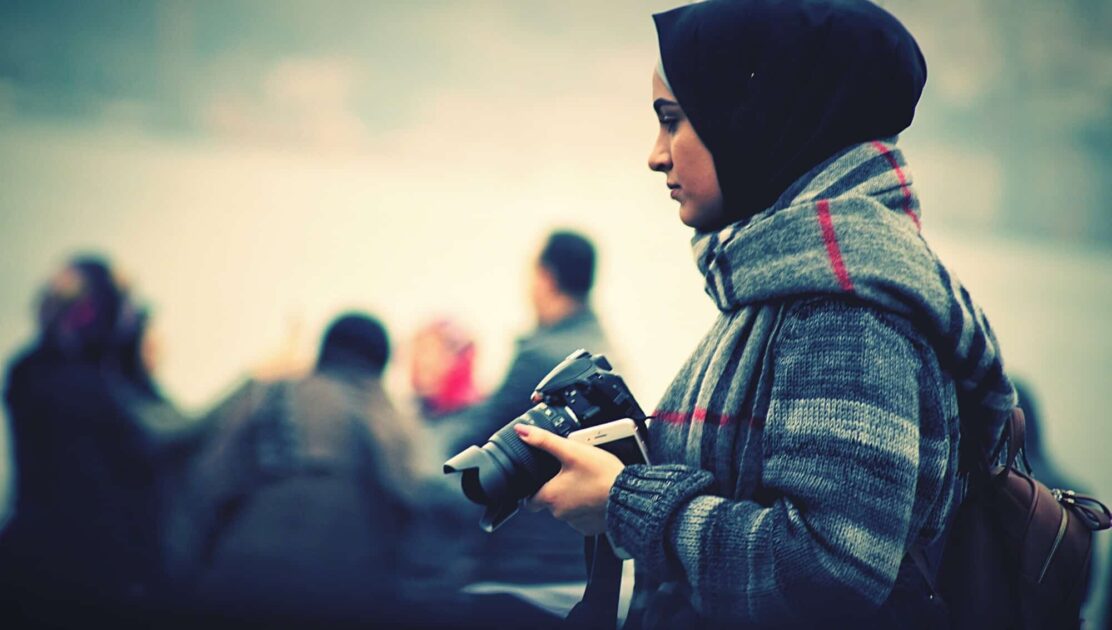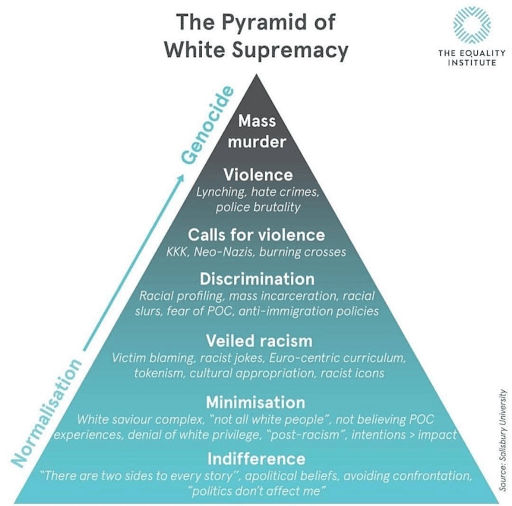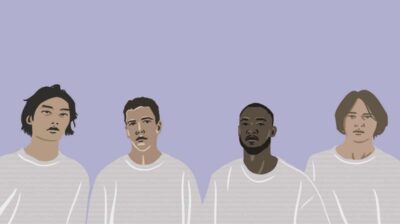What is the definition of racism?
INAR defines the different forms racism takes

This content is from INAR’s Responding to Racism Guide: How to report racism and where to find help.
A single definition of racism is not always agreed upon, however racism is best understood as being an expression of a system of oppression which has its history in white supremacy, where white people treat those from mostly ”non-white” groups a lesser. Oppression is when a group of people experience cruel or unjust treatment over a long period of time. Racism is a system which complements and operates through the other systems of oppression with which it overlaps: for example, the oppression of people based on their class (economic), their gender (sexism) or their identities as LGBTQI+ people (homophobia and transphobia). The system of oppression reinforces and strengthens existing privilege.
Defining the different dimensions of racism
The important thing is to understand when trying to define racism is that racism as a system that is much more than something done by only ‘racists’ or individual acts. An entire culture or system can be built on racist oppression. Like other systems of oppression, racism works through overlapping dimensions: historical, structural, institutional and individual.
Historical racism
The definition of historical racism has to do with the history of domination (having power and influence over) and subordination (being considered lower than others) of groups (i.e. the racialisation of their relationships) in any given society. Different societies have different histories of conquest and domination, and so patterns of racialisation are specific to a certain group, if they overlap.
In the US, the history of people of African descent means that to this day African Americans experience a specific form of racialisation, which is when a group of people are defined by their race. Other groups who also experience this include Native Americans, Roma in Europe and Asians in Britain.
These histories impact on the position of groups in societies today because they continue to be reflected in the structures and institutions of those societies, in their laws and legacies, and in the language and cultural attitudes of people.
Racialisation: An example of historical racism
Today, many other groups of people (mostly “non-white” and non-European, but also including white-skinned groups like Irish Travellers or Eastern European migrants in Ireland) still experience similar processes of racialisation. In many parts of the world, migrants are racialised for being migrants. Jews are racialised for being Jews and Muslims are racialised for being Muslims. Globally, ‘race’ is one of the key bases for inequality, along with other groupings such as gender, class and the marginalisation of LGBTQI+ and disabled people.
Structural racism
Structural racism, sometimes called societal racism, refers to the fact that society is structured in a way (including via cultural norms) that excludes large numbers of people from racialised backgrounds from having equal life outcomes in for example health, education, death rates, infant mortality rates, rates of being in prison, arrest rates, employment rates etc.
The fact that life expectancy at birth for male Travellers is 15.1 years less than men in the general population, is an example of structural racism. The fact that 16% of Africans living in Ireland are out of work, compared with 4% of people from Western European countries, is another.
Institutional racism
Institutional racism is when racism happens in the practices of social and political institutions (such as schools, governments, health providers); from the way they discriminate against certain groups, whether intentionally or not, and to their failure to have policies that stop discrimination or discriminatory behaviour. An example of this is how European citizens can travel to Ireland without a visa, but people from African countries cannot. Another, probably better example: people living in the Direct provision (asylum seekers) can’t cook for themselves and have no access to kitchen facilities.
It can be found in processes, attitudes and behaviours which lead to discrimination through unintentional prejudice, ignorance, thoughtlessness, unconscious bias and racist stereotyping which puts ethnic minority people at a disadvantage. This makes moving through the world generally fraught with difficulty and disadvantage. Institutional racism relates to the entire institution, including people.
Structural and institutional racism create the conditions that make forms of individual racism seem normal and acceptable, making discrimination and violence more likely.
Individual or “Interpersonal racism”
Individual or “interpersonal racism” is the term which covers the forms of racism which most people commonly understand as racism because they are the most visible forms. It covers all interactions or behaviour between individuals that are racist or have racist content. The term interpersonal racism covers a range of types of racist incidents, from “microaggressions” to racist name calling and racial bullying and harassment, to discrimination and racist hate crimes. Although incidents of interpersonal racism will be the most commonly recognised forms of racism, they happen because of the wider context of the historical, institutional and structural racism of society explained above. The impacts they cause are larger because they reinforce and are reinforced by the wider structures of racism.
The Pyramid of White Supremacy from the Equality Institute.
Examples of Interpersonal Racism
Microaggressions
Microaggressions are comments or actions that subtly and sometimes unconsciously or unintentionally express a prejudiced attitude toward a member of a marginalised group. While any single one of these incidents may seem relatively minor, if they are part of a pattern or taken in the context of other forms of racism they can have a wearing down effect on the person who receives them. Microaggression is abuse and bullying, and is felt at the subconscious level of feeling “other” and less than, leading to poor mental health, nervous system maladaptation, higher death rates, low self esteem, poor health outcomes generally etc. not just feeling ‘unwelcome’. Examples of microaggressions include being constantly asked “where are you from?”, or “can I touch your hair?”.
Racist discrimination
Racist discrimination refers to the practice of treating a person or particular group of people differently. Especially if they are treated in a worse way from the way in which you treat other people, because of their real or perceived “racial”, national, ethnic or cultural backgrounds. This generally happens in an employment setting or in the accessing of goods or services.
Racist discrimination can often be an act of individual or interpersonal racism, but if an organisation’s culture or policies fail to prevent acts of racist discrimination, this can be said to be an example of institutional racism.
Racist hate crimes
Racist hate crimes are crimes in law that are committed against people that have been at least partially motivated by a bias against them because of their real or perceived background such as their gender, skin colour, ethnicity or sexual orientation.
Hate crimes have two elements:
- they are ordinary crimes in law (i.e. arson, assault, murder etc)
- they have been motivated (at least partly) by prejudice
Irish law does not as yet fully recognise hate crime or hate speech as a criminal offence, however INAR, as part of the Coalition Against Hate Crime, is working hard to change this. For more information visit their website and sign the petition here.
Racist hate speech
Hate speech covers all forms of expression that spreads, incites, promotes or attempts to justify any form of hatred, stereotyping or discrimination that is based on prejudice. Racist hate speech includes intolerance of people based on their real or perceived “racial”, national, ethnic or cultural backgrounds (including Travellers and Roma), or their real or perceived religious identity.
If you have experienced or witnessed racism in Ireland you can report it at iReport.ie.
Feeling overwhelmed and want to talk to someone?
- Get anonymous support 24/7 with our text message support service
- Connect with a trained volunteer who will listen to you, and help you to move forward feeling better
- Whatsapp us now or free-text SPUNOUT to 50808 to begin.
- Find out more about our text message support service
If you are a customer of the 48 or An Post network or cannot get through using the ‘50808’ short code please text HELLO to 086 1800 280 (standard message rates may apply). Some smaller networks do not support short codes like ‘50808’.







